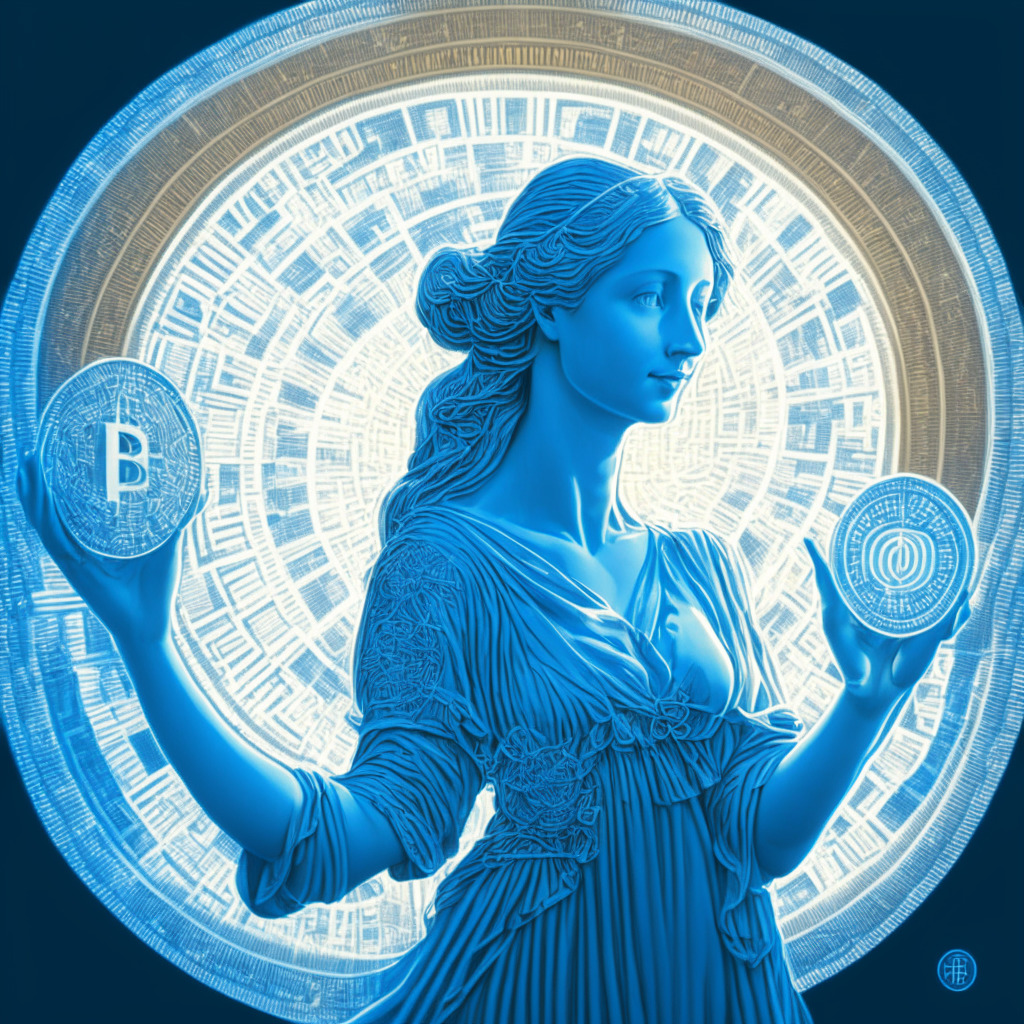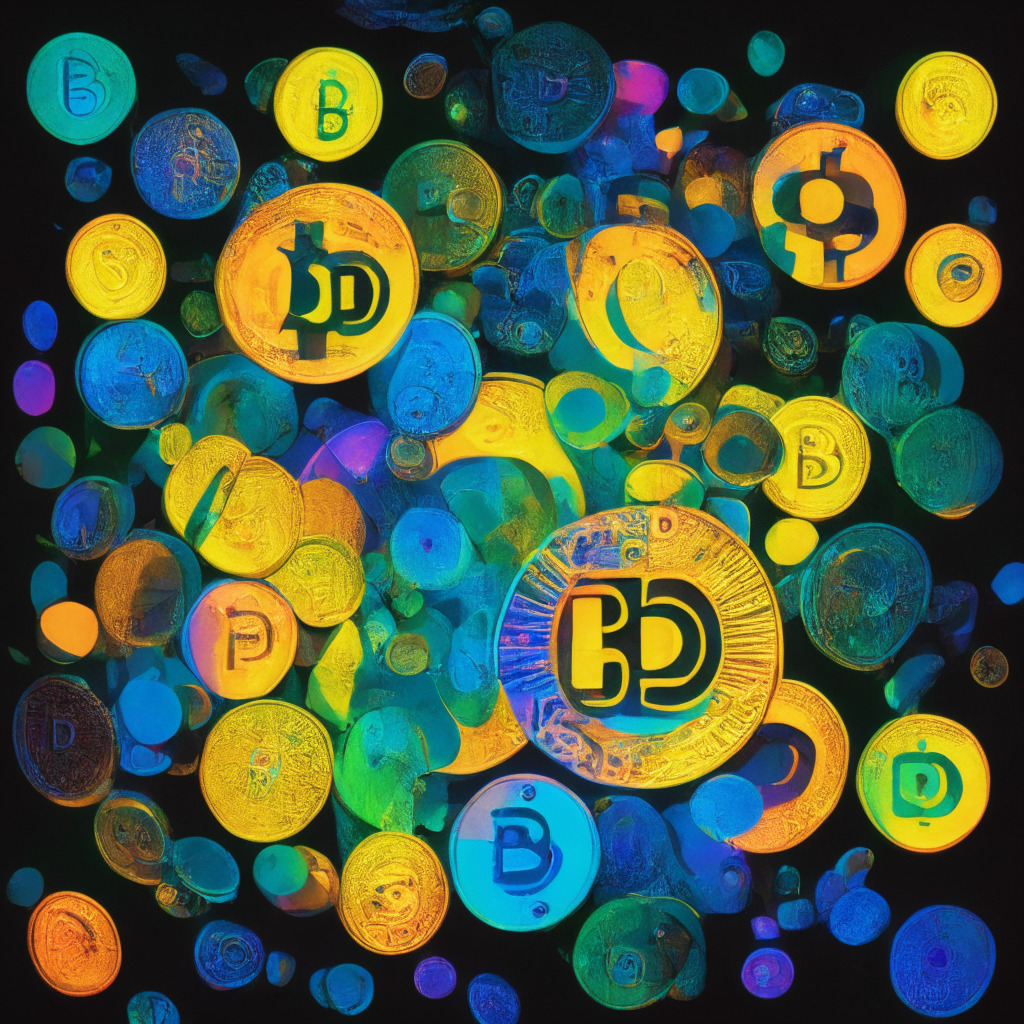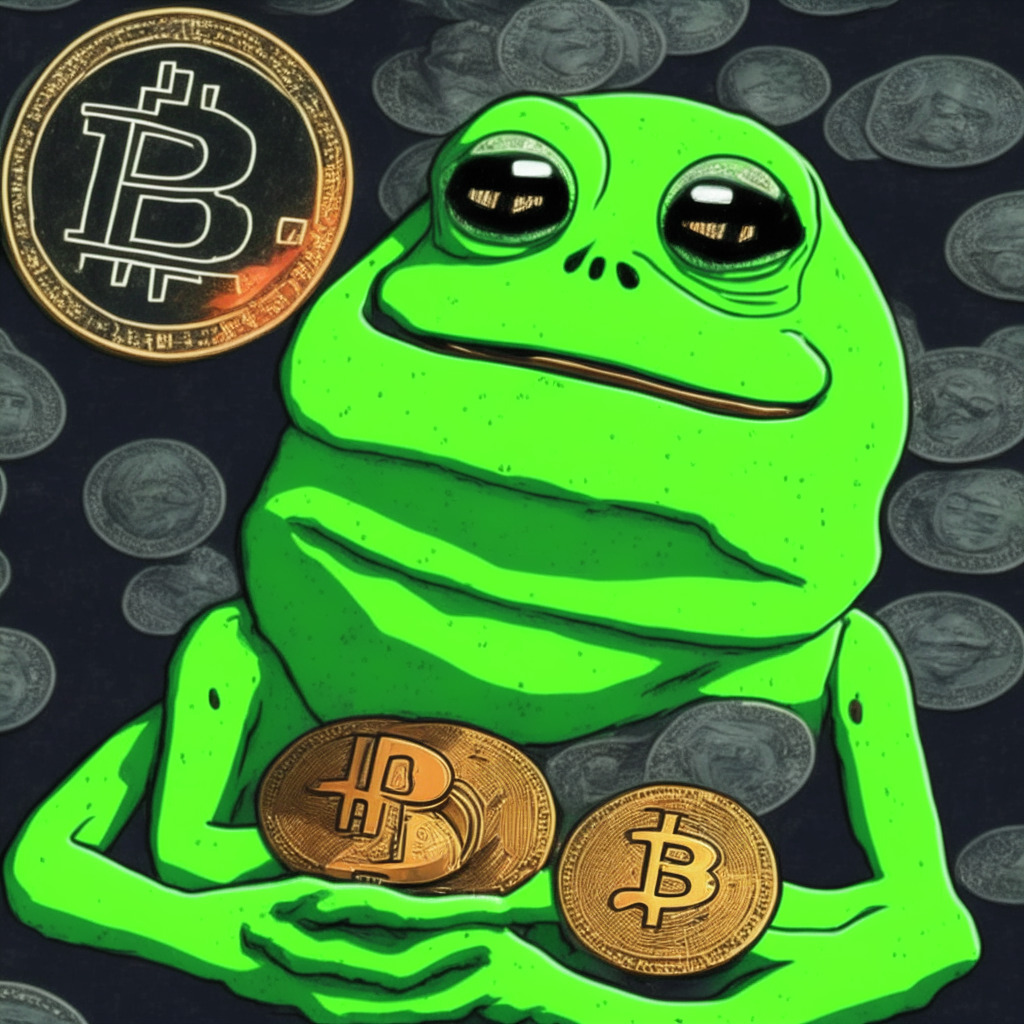“The blockchain space faces security concerns following a vulnerability warning by Ethereum and DeFi protocol, Balancer. Balancer disclosed $2.8 million hangs in balance, urging users to withdraw their assets. Despite the risk, the incident underscores the importance of maintaining solid security within the blockchain technology.”
Search Results for: FET
Facebook’s Crypto Ad Conundrum: Promoting Blockchain Innovation and Ensuring User Safety
Under growing global regulatory scrutiny, Meta (Facebook) faces ultimatums from Thailand’s DES against fraudulent cryptocurrency scams advertised on its platform. Via lax ad regulations, Facebook’s increasing embrace of blockchain and crypto simultaneously invites potential misuse by malicious actors, emphasizing the need for responsible blockchain adoption.
FTX Legal Ordeal: Unfolding Drama, $176 Million at Stake, and Future of Crypto Safety
FTX cryptocurrency exchange faces a legal filing involving a proposed settlement with Genesis entities worth $176 million. If successful, FTX and its affiliates could bypass various complications and gain significant economic advantages. Wider discussions highlight the crucial role of such legal decisions in shaping future cryptocurrency regulation and safety.
Sei Labs Mainnet Live: Revolutionizing Asset Exchange or Risking Safety Protocols?
“Sei Labs recently announced its layer 1 blockchain “Sei” is live after a successful testnet phase with SEI, Sei’s native token, listed on prominent exchanges. Sei intends to simplify asset exchange including Non-Fungible Tokens (NFTs). However, they are also focusing on gaming, social platforms, and carbon credits, not just DeFi assets.”
Dissecting DeFi Security: An Unnerving Ride with Hacks, Investments, and Future Safety Measures
“In the face of security breaches in the DeFi sector, such as the infamous Curve Finance hack, the industry remains resilient. Major developments include Binance’s $5 million investment in Curve, and collaborations between Aptos and Microsoft for Web3 solutions. Despite the security challenges, the sector continues striving for its ambitious goals, while addressing the critical necessity of transactional security.”
Bitget Wallet: A Beacon of Safety or A Potential Threat in a Volatile Cryptocurrency Landscape?
Bitget Wallet, previously BitKeep, recently created a $360 million User Protection Fund to enhance security following a malware incident that led millions into loss. The wallet now includes stable payment channels and a P2P marketplace for smoother transactions, while underlining the importance of user education, stringent security measures, and swift responses to breaches.
Navigating France’s Revamped Crypto Regulation: Balancing Investor Safety & Market Growth
France’s Autorité des Marchés Financiers (AMF) is updating its digital asset regulatory structure in preparation for the new Market in Crypto Asset (MiCA) regulation. The changes target the General Regulation and the registration process for Digital Asset Service Providers (DASPs), requiring timely disclosure of novel developments to regulatory bodies.
Nigeria’s Cautious Stance on Crypto: Balancing Investor Safety and Industry Growth
“The SEC of Nigeria has warned investors against interacting with crypto exchange, Binance, citing its lack of necessary local operating license. This highlights the regulatory challenges confronting the evolving blockchain sector, which could potentially hinder innovation and growth.”
Navigating the Controversy: Worldcoin’s Retinal Scans Stir up Crypto Scepticism and Safety Debates
Worldcoin, a project aiming to authenticate users via retinal scans for a global digital currency, faces scrutiny over its biometric data collection methods from various European authorities concerned about potential user risk. Amidst this flak, Worldcoin is still attracting significant interest, exemplifying the ongoing conflict between fostering innovative growth and ensuring security in the crypto space.
Banking Crisis Ripple: Heartland Tri-State Bank’s Collapse & Its Implications on Industry Safety
“The disruption in the U.S. banking sector, illustrated by the recent collapse of Heartland Tri-State Bank, is attributed to rising U.S. interest rates and inadequate risk management. This crisis highlights a need for improved banking system safety measures and increased bank executive accountability.”
India’s Crypto Dilemma: Balancing Innovation, Safety, Sovereignty in Turbulent Cryptocurrency Waters
India’s Supreme Court has voiced concern over the’ ongoing delay in setting clear crypto regulations by the union government, amid increasing crypto-related criminal activities. Despite intense trading volumes and central interest in the crypto market, the government’s unclear guidelines and imposed taxation laws risk pushing established firms overseas.
Unmasking the Two Faces of DeFi: The Lure of Freedom and the Lingering Concerns of Safety
“Decentralized finance (DeFi) brings transparency and freedom from centralized authorities, yet lack of regulatory oversight leaves safety in question. Despite allowing for more financial services and privacy, DeFi carries potential risks, including loss of funds due to wrong transactions or lost keys.”
Cryptosphere Weekly Roundup: Market Fluctuations, Sec Regulations, and Wallet Safety
“In a tumultuous week for the cryptosphere, signs of a five-quarter drop in crypto investment emerged, yet developments like Neon EVM’s unique offering to build Ethereum applications on Solana, showed promise. Amidst market fluctuations, regulatory pressures and unique crypto innovations, this sector’s dynamics continue to surprise, underscoring the importance of wallet safety in navigating the digital ocean.”
AI Safety: Industry Giants Pledge, Challenges Lie Ahead, Future Perspectives Unfold
“Major artificial intelligence firms, including Google, Microsoft, and OpenAI have pledged towards creating a future where AI is secure, transparent, and safe for users. This commitment encompasses pre-release security testing, investing in cybersecurity, establishing threat safeguards, enabling third-party vulnerability reporting, and navigating global regulatory frameworks.”
Navigating Cryptocurrency Scams: Uniswap, Binance and the Real Cost of Online Safety
“In the face of rising phishing and social engineering scams in the cryptocurrency industry, Binance CEO suggests the use of hardware devices for two-factor authentication (2FA). Among proactive measures, experts recommend robust security applications such as Google Authenticator over traditional methods like SMS to counter threats.”
Kuwait’s Cryptocurrency Prohibition: A Setback or Necessary Safety Measure?
Kuwait’s primary financial regulator, the Capital Markets Authority (CMA), has issued an “absolute prohibition” on most cryptocurrency activities, including payments, investments, and mining. They warned about the risks of virtual assets, highlighting cryptocurrencies’ lack of legal status. This major decision sparks debate about its efficacy in combatting money laundering and terrorist financing.
SEC’s Cry for More Crypto Oversight: A Safety Net or A Threat to Innovation?
“SEC Chairman, Gary Gensler, seeks a significant budget increase to strengthen crypto market regulations, arguing it’s currently a ‘Wild West’ of noncompliance. This move could enhance investor safety but potentially stifle tech innovation in this emerging industry.”
UK’s Stance on Crypto Regulations: Ensuring Market Safety versus Fostering Innovation
Nikhil Rathi, CEO of Financial Conduct Authority (FCA), highlighted that despite the size of crypto firms, their commitment to strict regulatory scrutiny remains unchanged. With over 300 applications in two years, only 42 received approval due to adherence to anti-money laundering regulations.
Striding Ahead: How Stride’s Shift to Cosmos Security Impacts Tokenomics and Network Safety
Stride, the Cosmos-based liquid staking protocol, is planning a significant shift in security measures, transitioning from its current STRD token model to Cosmos’ interchain security system powered by ATOM tokens. While potentially diluting Stride’s network sovereignty, this change aims to enhance security resilience and balance sustainability.
Navigating the Murky Waters of Metaverse Regulation: UK’s Online Safety Bill & Beyond
The UK House of Lords deliberates if metaverse should be governed by online safety regulations established in the UK’s Online Safety Bill, emphasizing the potential vulnerability of children and adults in these digital spaces. Variations exist in international regulations, raising standardization concerns and questioning the adequacy of traditional legal systems to address rapidly evolving digital spaces.
Navigating the Regulatory Terrain for Stablecoins: Promising Future vs. Consumer Safety Debate
“The European Banking Authority is urging an early adaptation of guidelines for managing stablecoins, ahead of mandatory regulations due next year. This includes understanding and implementing the EU-approved MiCAR framework’s measures for good governance and consumer protection. These preemptive actions are designed to reduce potential risks and facilitate effective consumer protection in the rapidly evolving stablecoin market.”
Global Digital Currency Race: Stablecoins Threat or CBDCs Safety?
“The race for global digital currency dominance has stablecoins and Central Bank Digital Currencies (CBDCs) in the lead. However, Rabi Sankar, Deputy Governor of the Reserve Bank of India, warns that stablecoins could pose significant policy sovereignty risks for certain nations.”
Surging BOBO Coin: Impressive Gains or Inflated Bubble? Evaluating Meme-Token Space Safety
“Bobo Coin (BOBO) experienced a remarkable 200% surge within 24 hours, raising its total gain since initial offering to 3,000%. Despite its growth, concerns arise due to its negligible fundamentals and potential for a prompt correction, emphasizing the volatility and unpredictability of meme tokens.”
Striking the Balance: South Korea’s New Crypto Legislation, Investor Safety and Innovation Stifling Consequences
South Korea recently passed the ‘Virtual Asset User Protection’ legislation, a collection of 19 crypto-related bills aimed at safeguarding investors and addressing unfair trading in the cryptocurrency arena. This law also holds Virtual Asset Service Providers (VASPs) accountable for users’ deposits and insurance provisions, aimed at protecting against risks including hacks and computer failures.
Crypto World Update: Scandals, Legal Battles, Innovations, and Safety Concerns
This week in crypto, deception and legal battles intertwined with ambitious innovations. Key highlights include Crypto.com’s internal teams trading tokens for profit, Valkyrie Funds filing a Bitcoin ETF application, and global governments exploring digital currency regulations. Safety remains crucial as crypto crime and hacks persist.
Blockchain Revolution: Disruptive Potential vs Regulatory and Safety Concerns
The blockchain revolution has garnered attention for its potential for disruption and advancement. This technology enables greater transparency and decentralization, transforming industries such as decentralized finance (DeFi). However, concerns about safety, criticisms, and regulatory hurdles call for adaptability, diligence, and collaboration within the community to unlock blockchain’s full potential.
AI Safety Legislation: Balancing Innovation and Public Trust in the Era of Artificial Intelligence
US Senate Majority Leader Chuck Schumer plans to call for comprehensive legislation regarding AI safety measures, emphasizing bipartisan action from Congress. Addressing safe innovation, privacy, biases, and misinformation, Schumer aims to ensure responsible and secure AI development while maintaining public trust in the technology.
National AI Commission Act: Balancing Innovation and Consumer Safety in AI Development
The National AI Commission Act, introduced by U.S. lawmakers, aims to establish a regulatory framework for AI technology by bringing together experts, government officials, industry representatives, and labor stakeholders to provide effective AI regulation, addressing concerns and potential risks associated with AI development and use.
Harnessing AI’s Potential: The Debate Over Stricter Regulations and Consumer Safety
Consumer protection groups in the EU are urging regulators to investigate AI models behind popular chatbots like OpenAI’s ChatGPT due to potential risks and vulnerabilities. As AI regulations tighten globally, balancing AI benefits with consumer rights and safety is crucial for creating a comprehensive regulatory framework and fostering public trust.
Elon Musk Labels AI Chatbot a Scam: BOB Token Value Dips & the Debate on Crypto Safety
An AI chatbot linked to the Pepe the Frog-inspired BOB Token has been removed from Twitter after Elon Musk called it a “scam crypto account.” Musk’s earlier interaction with the chatbot caused a 4,744% surge in token value, which later dipped by over 40% following the account’s suspension. This move aligns with Musk’s commitment to eliminating spam and maintaining a cleaner Twitter ecosystem.
AI Crypto Showdown: InQubeta vs Fetch.ai & Bittensor – Battle for Blockchain Future
InQubeta (QUBE) is gaining attention for its unique approach to blending crypto and AI, accelerating AI technology development through crowdfunding and fractional investment. Its NFT marketplace enables AI startups to mint equity-based NFT assets, making QUBE an enticing investment in the crypto community.
Mastering ChatGPT Prompts: Importance, Techniques, and Ensuring AI Safety
In this article, the importance of writing effective ChatGPT prompts is discussed to optimize AI performance. Users must provide clear instructions, specify context, and manage potential biases. The article also emphasizes prioritizing safety, security, and accountability while interacting with AI-powered tools.






























